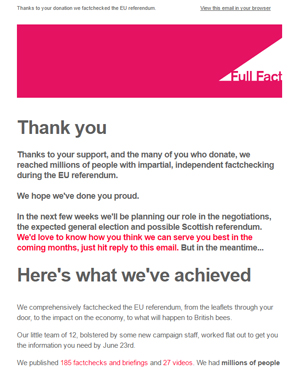In a referendum held on 23 June 2016, voters in the United Kingdom voted for the UK to leave the European Union. The legal repercussions of 'Brexit' are significant and will have an impact on the work of the Centre and its members. As a public institution, CELS believes that it has a role to play in understanding and explaining the legal dynamics of Brexit. As a research centre that focuses on European Legal Studies as a distinctive field of legal enquiry, CELS is well-positioned to explore the UK's changing relationship not just with the European Union, but with a range of states and organisations operating in Europe. Throughout 2016 and 2017, CELS will host a number of events and activities focusing on the legal implications of Brexit and details of those events can be found on this site.
------------------------------------
On the 23rd June, voters in the United Kingdom were asked in a referendum to decide whether they wished the United Kingdom to 'Remain' in the European Union or to 'Leave', and to determine whether the UK would notify the European Council of its decision to withdraw from the EU using the procedure set out in Article 50 of the Treaty on European Union.
Two organisations were officially recognised by the Electoral Commission as leaders on either side of the referendum campaign:
 During the course of the campaign, different statements and assertions were made by both sides. CELS is pleased to have supported Full Fact, one of many organisations and news programmes which sought to check the accuracy of these statements and claims.
During the course of the campaign, different statements and assertions were made by both sides. CELS is pleased to have supported Full Fact, one of many organisations and news programmes which sought to check the accuracy of these statements and claims.
The UK Economic and Social Research Council (ESRC) also funded a programme on The UK in a Changing Europe. It provided expert analysis of these issues from a group of expert senior fellows. CELS Chair, Professor Catherine Barnard was one of these senior fellows. You can read more about her fellowship and her collaboration with CELS member Dr Amy Ludlow at the EU Migrant Worker Project.
Blogging and social media was significant throughout the referendum and different universities offered access to opinion and debates including:
- European Futures (University of Edinburgh)
- Brexit Vote (LSE)
- The UK and Europe (Constitution Unit, UCL)
CELS and the EU Referendum
Public engagement is an important aspect of the work of CELS. Our members were hugely active in seeking to inform on the issues surrounding the referendum.
CELS organised a number of events related to the referendum and some video and audio resources are still available:
- Brexit week: A week of interdisciplinary discussion events to engage University of Cambridge students and the local community in key current debates about Brexit and the UK’s future relationship with the EU.
- EU Referendum questions (video series)
- What’s In Cameron’s Baskets and Why Does it Matter? (Law in Focus)
- What would Brexit mean for free movement? (Law in Focus)
- Dan Mulhall, Irish Ambassador to the UK on Ireland’s perspective on the UK referendum (CELS Seminar)
- Aidan O’Neill QC, Citizenship, Free Movement and the Referendum Franchise (CELS Seminar)
Members of CELS have spoken at a large number of referendum-related events and you can find some examples of Professor Catherine Barnard’s outreach work on the EU Migrant Worker Project website.
You can also see Professor Kenneth Armstrong discuss Brexit and its consequences together with Sir Stephen Wall and Professor Simon Hix, LSE at an event organised by The Constitution Unit at UCL.
CELS experts have also contributed letters and articles to journals, newspapers and blogs:
- Brexit: A Guide for the Perplexed, BBC Radio 4 series featuring Catherine Barnard, beginning 17 February, 2017
- The Supreme Court saved us years of delays by refusing to give Scotland a veto on Brexit, Christopher Forsyth, 24 January 2017
- Parliament needs to load the Article 50 gun before Prime Minister triggers Brexit, Kenneth Armstrong, 24 January 2017
- University of Cambridge Portal on Brexit
- Opinion: Brexit and workers' rights, Catherine Barnard, 18 January 2017
- Opinion: The Full Brexit, Kenneth Armstrong, 17 January 2017
- Brexit Time - A blog maintained by Kenneth Armstrong (a companion to the book Brexit Time to be published by Cambridge University Press in Spring 2017).
- David Howarth: On Parliamentary Silence - David Howarth, UK Const. L. Blog, 13 December 2016
- The Executive Cannot Abrogate Fundamental Rights without Specific Parliamentary Mandate – The Implications of the EU Charter of Fundamental Rights for Triggering Art 50 - J. Adenitire, U.K. Const. L. Blog, 21st July 2016
- Law in Action: Brexit in the High Court - Mark Elliott and Catherine Barnard, University of Cambridge, 10 November 2016
- Faculty members defend judicial independence in letter to The Times, 9 November 2016
- Fundamental Legal Aspects of UK Withdrawal from the EU: Eight Stages on the Way to a New Relationship - Philip Allott, University of Cambridge, 9 November 2016
- Brexit, the Royal Prerogative, and Parliamentary Sovereignty - David Feldman, University of Cambridge, 9 November 2016
- Law in Action: Brexit in the High Court - Mark Elliott and Catherine Barnard, University of Cambridge, 10 November 2016
- The High Court’s Miller Judgment - Christopher Forsyth, University of Cambridge, 8 November 2016
- Numerous Brexit articles - Mark Elliott, University of Cambridge
- Brexit: High Court ruling on Article 50 explained - Kenneth Armstrong, University of Cambridge, 3 November 2016
- Article 50 and the Royal Prerogative - T. Fairclough, UK Const. L. Blog, 8 Jul 2016
- Forget the politics - Brexit may be unlawful - Philip Allott, The Guardian, 30 June 2016
- Cambridge TV Law Matters Ep17 - The EU Referendum - Lorand Bartels
- Brexit, Labour Rights And Migration: What’s Really At Stake - Simon Deakin
- The Vote Leave Framework for a New UK-EU Deal: Analysis (CELS Working Paper No. 3) - Kenneth Armstrong
- A Closer Look at the Left Wing Case for Brexit – letter by Professor Kenneth Armstrong, The Guardian, 18 May 2016
- EU Referendum: will leaving the European Union lead to more sovereignty for the UK? – City a.m. (quoting Professor Kenneth Armstrong), 2 April 2016
- Honeypot Britain? Do EU nationals come to the UK for benefits? openDemocracy, Catherine Barnard and Amy Ludlow, 23 March 2016
- The Guardian expert panel, 15 March 2016
- Honeypot Britain? EU migrants’ benefits and the UK referendum - University of Cambridge, 25 February 2016.
- Cameron's subsidiarity battle - UK in a Changing Europe, 17 February 2016.
- Explaining the EU deal: deporting EU immigrants - Full Fact, Catherine Barnard, 17 February 2016.
- Brexit Voice and Loyalty: what ‘new settlement’ for the UK in the EU? – Professor Kenneth Armstrong, Verfassungsblog, 10 November 2015
- Why the latest EU referendum question is worse than the original – Professor Kenneth Armstrong, The Conversation, 3 September 2015


 X/Twitter
X/Twitter Email
Email